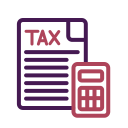What to File and When: Key Deadlines for Expats
Most individuals file by April 30, while self-employed have until June 15 to file, though any balance is still due April 30. Set reminders now to avoid interest charges on amounts owing after the April deadline.
What to File and When: Key Deadlines for Expats
You’ll typically file a T1 return and include slips like T4 for employment, T5 for investment income, and T3 for trust distributions. Keep foreign statements handy too, as currency conversions and reconciliation take extra time.
What to File and When: Key Deadlines for Expats
New to filing? You’ll need a SIN or an ITN if you are not eligible for a SIN. Some first-time filers must mail returns; others can NETFILE. Save copies of passports, visas, and arrival dates to support your residency timeline.






